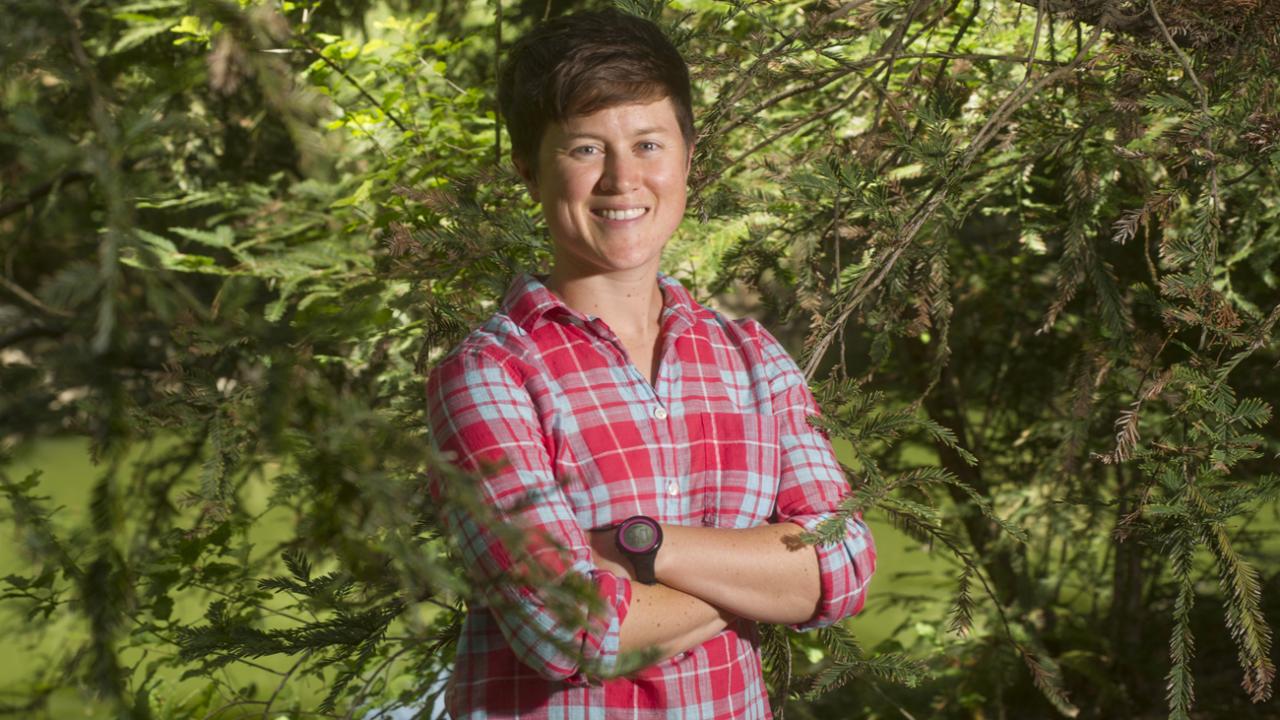
Katie Markovich
What matters to Katie?
Quick Summary
- Developing tools to better understand and thus prepare ourselves for the water resource challenges of current and future generations. Also, bikes.
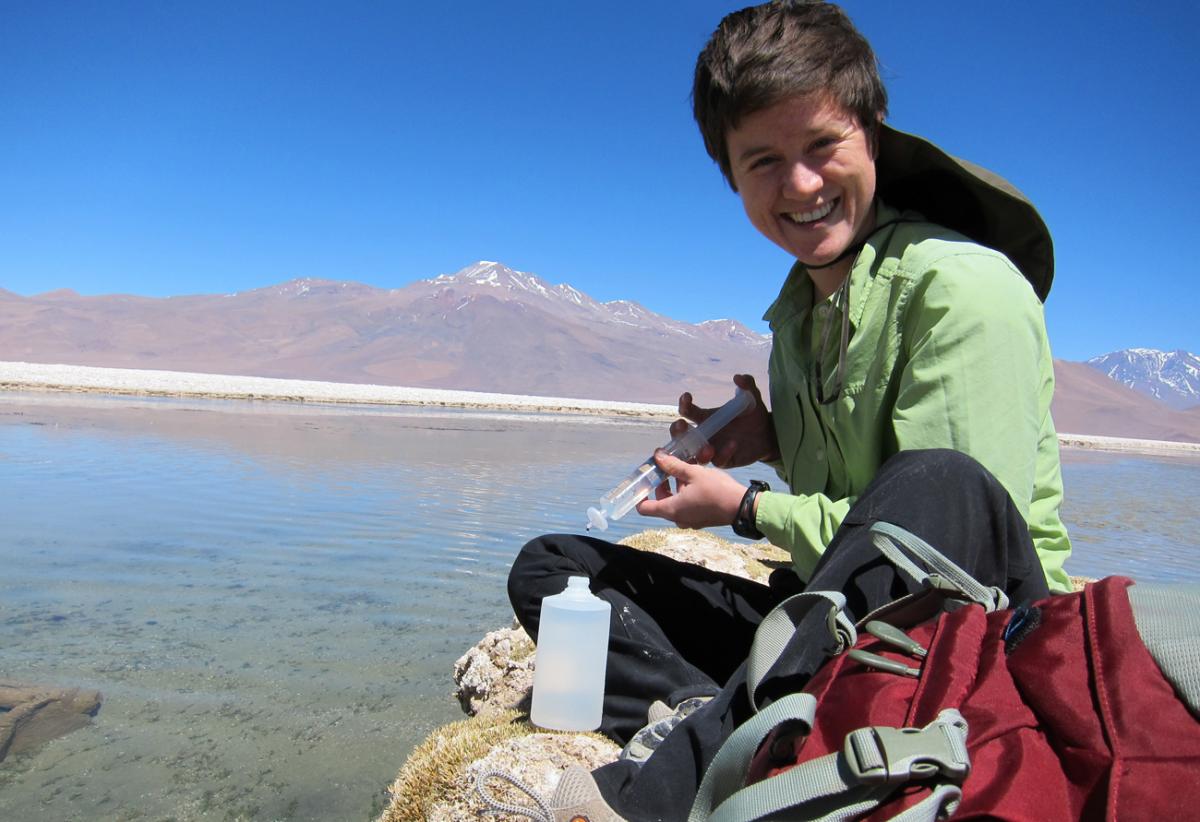
Austin, Texas native Katherine Markovich, a Ph.D. student in Hydrologic Sciences, was drawn to UC Davis in equal parts by the university and the region. As an undergraduate student in love with research, she encountered UC Davis’ Climate Change, Water, and Society Integrative Graduate Education Research and Traineeship (CCWAS IGERT). The IGERT was attractive because it promoted interdisciplinary training as part of the graduate experience. “I could study groundwater while also gaining great exposure to climate and policy science,” she explains.
But Davis, the home of the US Bicycling Hall of Fame, especially appealed to Markovich, a major bike enthusiast who spent years enjoying Austin’s cycling counter-culture. “I found it amazing that there exists a place in this country where riding your bike to school or work or a restaurant is the norm!”
California, a leader in environmental science, is the perfect setting for interdisciplinary science researchers like Markovich, a National Science Foundation (NSF) Graduate Research Fellow and 2012–2013 Fulbright Fellow. Her interests include integrated hydroclimate modeling, and hydrogeologic complexity and ecohydrological feedbacks in alpine groundwater systems. In other words, how will climate change affect recharge to these systems, and what role can forest management play in managing water resources in the mountains?
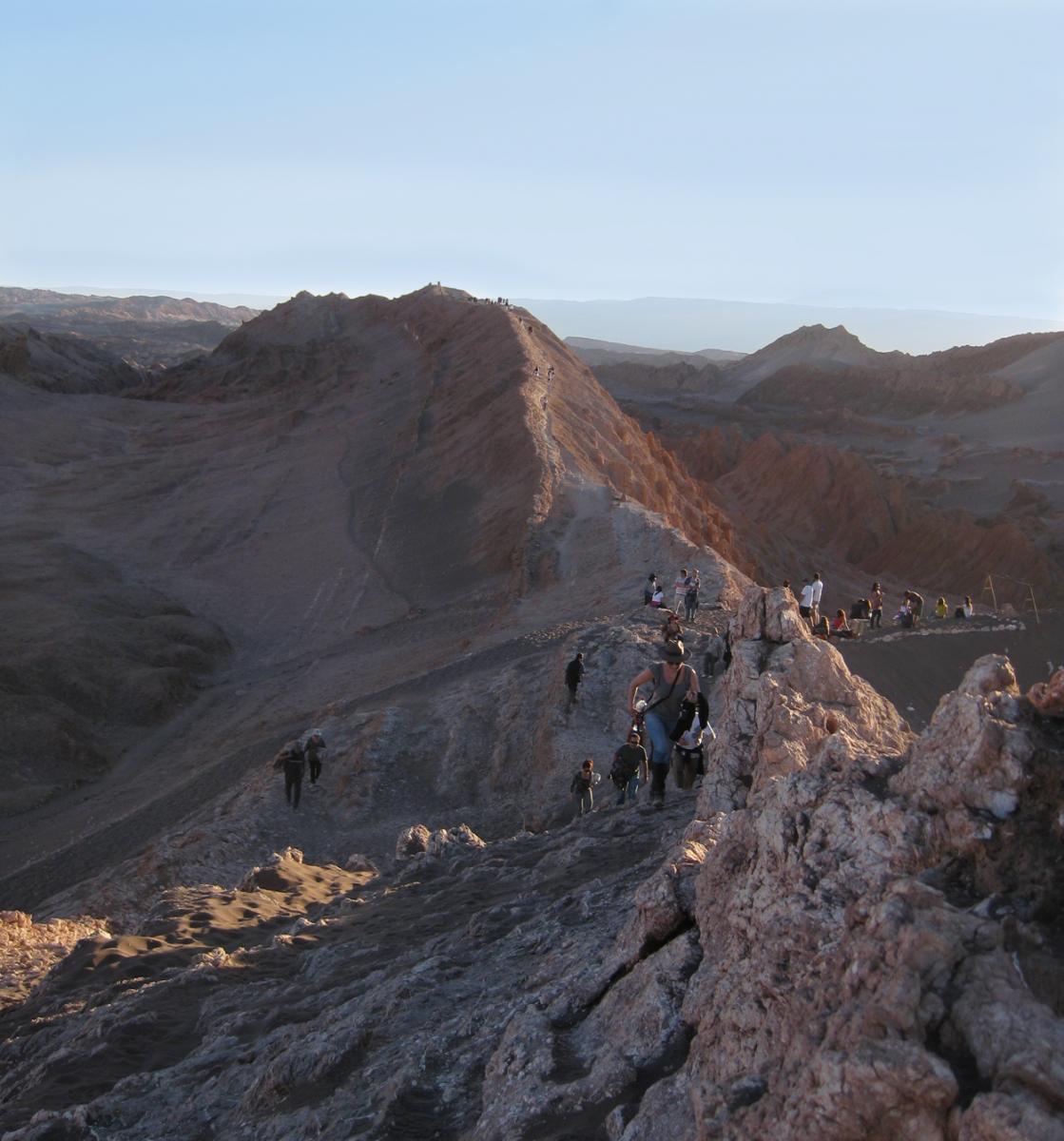
Markovich says new research insights are “the spice of collaboration,” and this dynamic interweaving of disciplines is the foundational core of research study at UC Davis. Her advisor, Graham Fogg, professor of hydrogeology, recently suggested her name to an ecology student studying tree ring response to climate stress. They mentored each other, sharing excitement for the potential intersection of their research paths, feedback and processes, while navigating responsibility and ownership of the ensuing deliverables: she learned about tree physiology, something she knew little about, and, in turn, taught her peer about hydrogeology. “I think, as Ph.D. students, we are thirsty to learn and driven to know everything about our field, but it is really humbling and ultimately far more rewarding to admit to not knowing something.”
Another opportunity came via ParFlow, a computer program that simulates groundwater and surface water flow. After speaking with colleagues about the learning curve of this program, Markovich, with Fogg’s “incredible support and flexibility,” coordinated a summer research residency, which she fondly nicknamed “ParFlow summer camp.” She spent a month at Colorado School of Mines working with the program developers and eased the learning curve. “This was not only critical to my research but also expanded my professional network. It was possible thanks to the dynamic exchange between our two departments.”
In addition to being a NSF grant recipient, Markovich has the strength of a world-class research university behind her when seeking additional funding. “I cannot overemphasize the advantage of attending a school with such a great reputation for graduate research when applying to external fellowships. This ‘indirect’ support means that having UC Davis as your host institution gives you a leg up in the competition.”
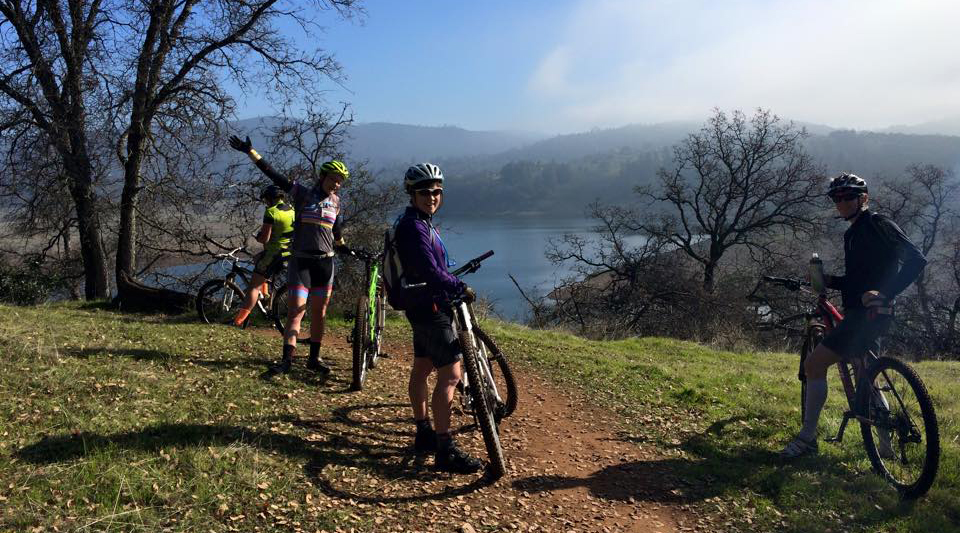
Her other passion is heading to Rocknasium, Davis’ uber-popular indoor climbing gym, with fellow students. “Half of the fun of climbing is spending time with these people. Often the conversations turn to research, ins and outs of graduate studies, or how best to navigate professional relationships within our programs.”
California is abundant with environmental opportunities for investigators like Markovich, but she is also enthusiastic about the opportunity to stay in the region simply for, well, the region. “The more I explore Davis and Sacramento, the more I’m amazed that it has remained such a well kept secret,” she says. “The weather is nice, the people are friendly, and we’re close to so many incredible trails!”
Markovich spent a year in Cambodia on a Fulbright research fellowship working on land use change impacts to water quality in a rural area close to the Mekong Delta.
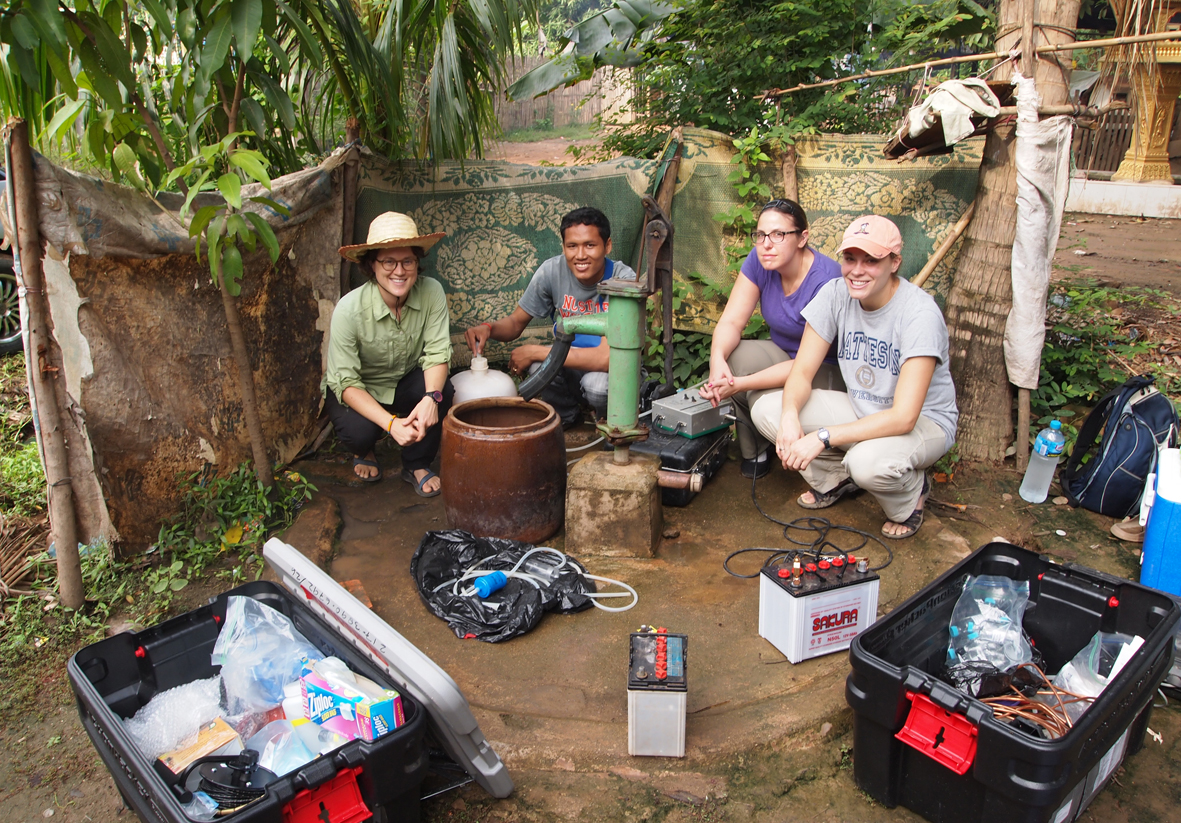
In Kenya, Markovich was involved with Well Aware, a hydrophilanthropy group based in Austin, Texas that provides water solutions for schools and orphanages.
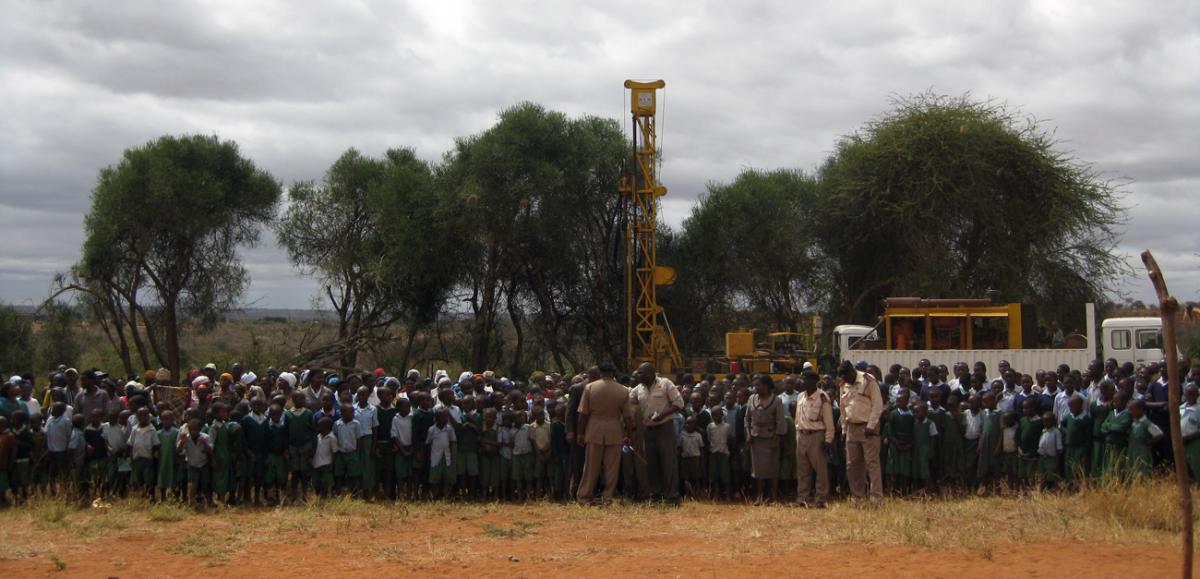
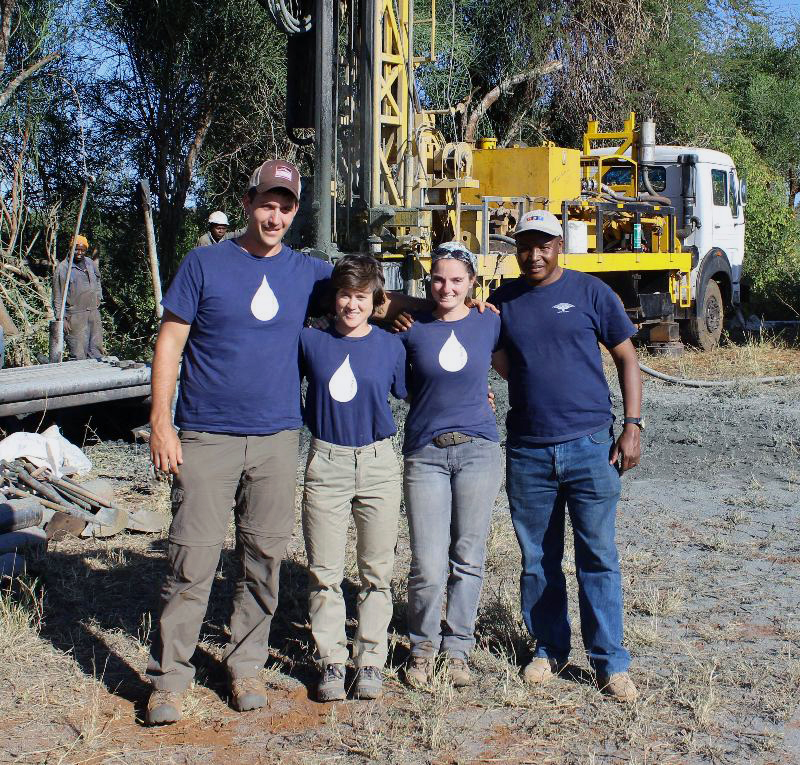
Markovich's notes from the field (Well Aware's Fall 2012 newsletter): This trip to Kenya was my first experience with applied hydrogeology in developing regions, and I definitely had my reservations going into it. But volunteering with Well Aware gave me firsthand experience of the myriad positive impacts hydrophilanthropy can have.
The highlights of the trip were definitely when we hit water first for the Tania Integrated Center and then for the Ndatani Secondary School. It was so rewarding to see how applied hydrogeology and engineering can bring water sustainability to life for the water-stressed communities, and nothing beats seeing the pure elation of the children and adults when water starts gushing out of the ground.
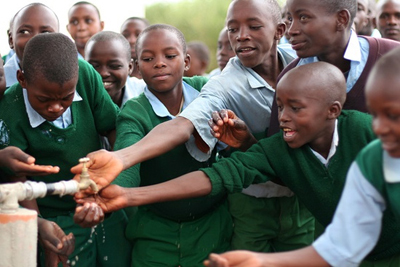
The rest of the trip included numerous visits to past, current, and future Well Aware projects, and I was really impressed with the careful planning and community involvement that goes in to each and every site. In particular, the Mithini Well was in great shape, and we were able to see the short-term success of the project in the form of their lush vegetable garden and exuberant children. This project may not be as big as some others, but to me it embodies the core goal of Well Aware and its success is incredibly motivating to continue working in hydrophilanthropy. Drilling wells for the sake of children having a chance at an education was incredibly meaningful to me and I look forward to future work with Well Aware!
